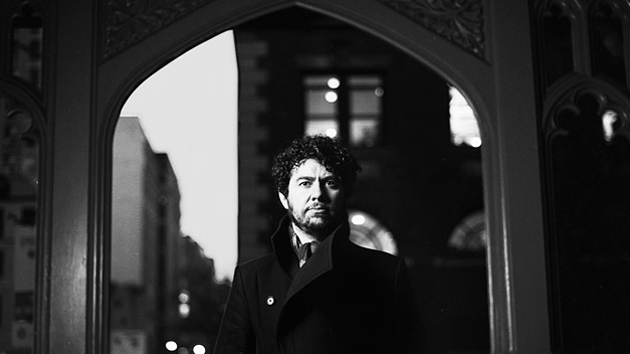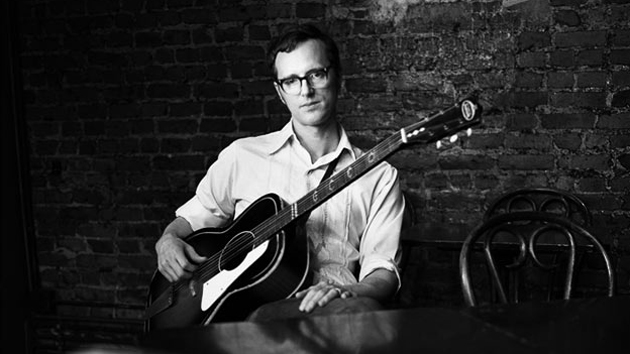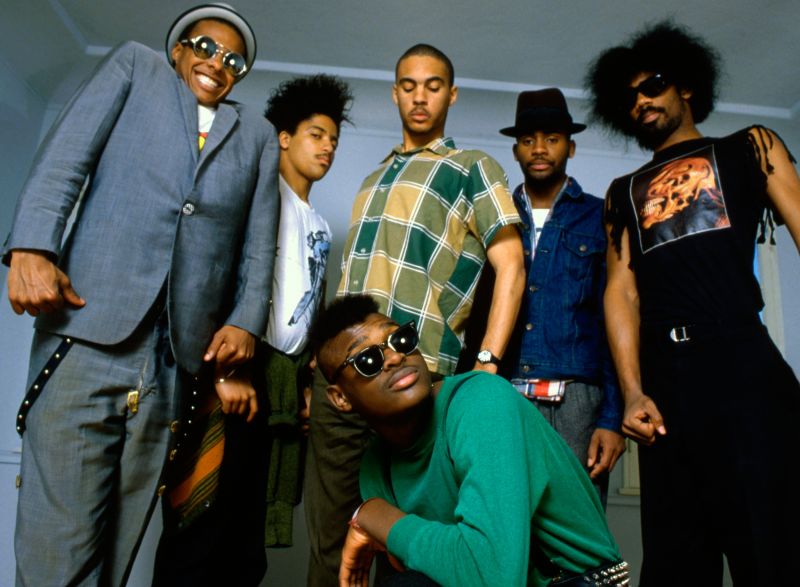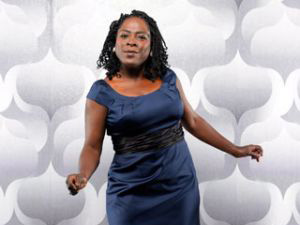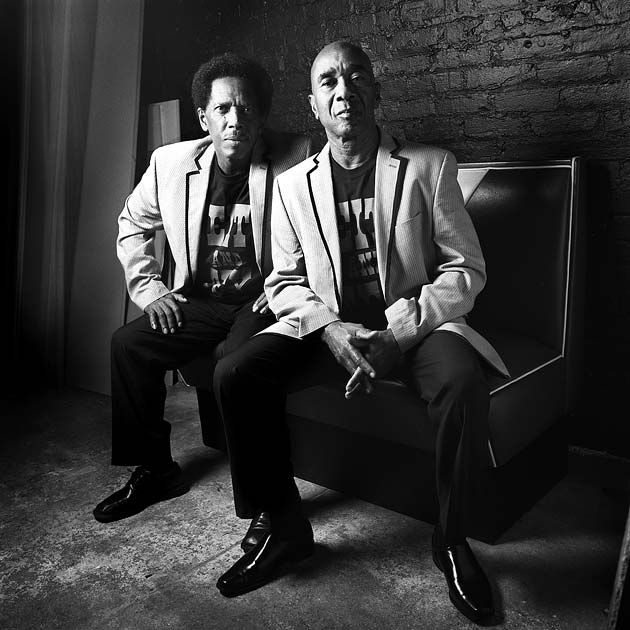
Performing as Keith & Tex, singing duo Keith Rowe and Phillip “Tex” Dixon hit it big in Jamaica in 1967 with their rocksteady anthem, “Stop That Train,” popularizing a song first recorded two years earlier by the Spanishtonians. (You may recognize another version of the song: “Draw Your Brakes,” from the soundtrack to Jimmy Cliff’s The Harder They Come.) Rocksteady, a style of Jamaican music popular for a brief window from 1966 to 1968, was the stylistic bridge between ska and reggae, drawing heavily from American R&B and soul music.
Rowe and Dixon parted ways in 1970. Keith moved with his family to the United States and served in the army for more than 20 years, and Tex went with his to Canada. They reconnected in 1997 to record an album called, appropriately, Back Together Again, but it was only available on cassette. In the past year, they have been discovering new, young audiences around the world who are reverent of early Jamaican music. They have a new album, Redux, a return to their rocksteady roots. The pair were in Brooklyn this past December for their first-ever New York City show—part of Dig Deeper, a monthly series that showcases influential yet relatively obscure artists. I asked them to take us way back, and they obliged.
Performing as Keith & Tex, singing duo Keith Rowe and Phillip “Tex” Dixon hit it big in Jamaica in 1967 with their rocksteady anthem, “Stop That Train,” popularizing a song first recorded two years earlier by the Spanishtonians. (You may recognize another version of the song: “Draw Your Brakes,” from the soundtrack to Jimmy Cliff’s The Harder They Come.) Rocksteady, a style of Jamaican music popular for a brief window from 1966 to 1968, was the stylistic bridge between ska and reggae, drawing heavily from American R&B and soul music.
Rowe and Dixon parted ways in 1970. Keith moved with his family to the United States and served in the army for more than 20 years, and Tex went with his to Canada. They reconnected in 1997 to record an album called, appropriately, Back Together Again, but it was only available on cassette. In the past year, they have been discovering new, young audiences around the world who are reverent of early Jamaican music. They have a new album, Redux, a return to their rocksteady roots. The pair were in Brooklyn this past December for their first-ever New York City show—part of Dig Deeper, a monthly series that showcases influential yet relatively obscure artists. I asked them to take us way back, and they obliged.
Keith: I used to go to the Christmas morning concerts. That was a big thing in Jamaica. Your grandmother would take you to the door and pick you back up. You’d have maybe 10 acts—one band—it was a two-hour show. All the greats came out, it was the showcase event of the year. The Blues Busters, they were just great singers, so professional and they were just dancing. There was another group called the Clarendonians, about the same age group, but they were recording before us. That was the template for the kind of group we wanted to be.
Tex: Us being together happened by accident. We started out with five people, and because of circumstances we got pared down to two. We tried to work as a bigger group but it just didn’t work out. We had faith in ourselves and we decided to just carry on and see what we could do with it.
Keith: After we pared down the group, we made a tape of some songs—maybe four or five—that we thought were good enough to be recorded. We went out seeking a promoter or someone to manage us. We were gonna try Beverley’s [record label]. As it happened, we went to where Beverly’s was but they were closed. We didn’t want this to be a wasted trip, and we remembered that Derrick Harriott had a store not far away. So we decided, let’s take a chance and go up and see if Derrick is there. He wasn’t, of course, but his assistant was, and she, after listening to the tape, said, “Ah, this sounds pretty good. You guys just wait here. Derrick will soon be back.” Of course, he didn’t come back until like four hours later—
Tex: More like six!
Keith: Eventually he came, and she said: Derrick, watch dem two likkle boys ‘ere. Dey can sing, I say. And he listened to the tape and he said, “Guys, you’re in luck, we’re going to have a session this coming week.” And,just like that, he recorded us.
Tex: We respected him because he was in the Jiving Juniors, which was a big group, and then he went solo and had big hits. He was also in a band at the time, a very popular band called the Mighty Vikings. They were second only to Byron Lee [and the Dragonaires] as the country’s top band.
Keith: As kids, we were popular. In the local neighborhood we were like kings. Age 16, 17—you can imagine! It was like Michael [Jackson] but on a smaller scale. The girls are going wild. You walk past and they go, “There he is!” But as a grown man now with the opportunity to reflect, it’s just awesome. I love it more. I embrace it more. I appreciate it more. You get blown away when you see a German kid, or a room full—a big room full, 1,000 people, kids my son’s age—singing your song, word for word, in English!
Tex: Obscure songs! Songs that nobody popularized that we recorded. The level of appreciation shown to us now is quite different then in the past. At one point, I’d lost interest in this type of life because something else had replaced it, a different lifestyle. Now, it’s like we’re reverting to what we were doing and I’m just loving it. It’s really fulfilling. We love music. You just need the right forum to express it.
Keith: I think the biggest difference is, if we were singing to our age group then it would be nostalgia. But it’s a brand new audience! And that’s why it’s blown it away like it has. It really is overwhelming.
“Contact” is an occasional series of artist portraits and interviews by Jacob Blickenstaff.
